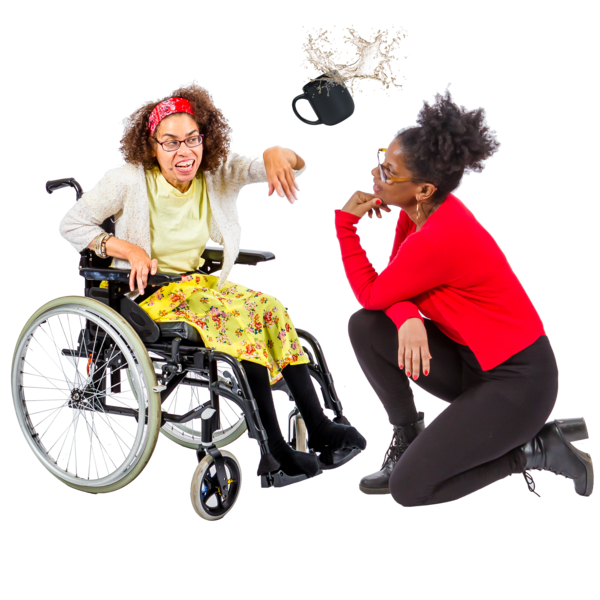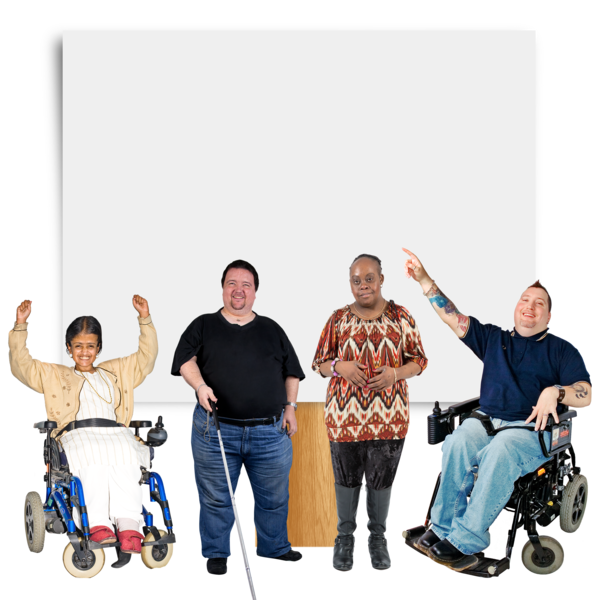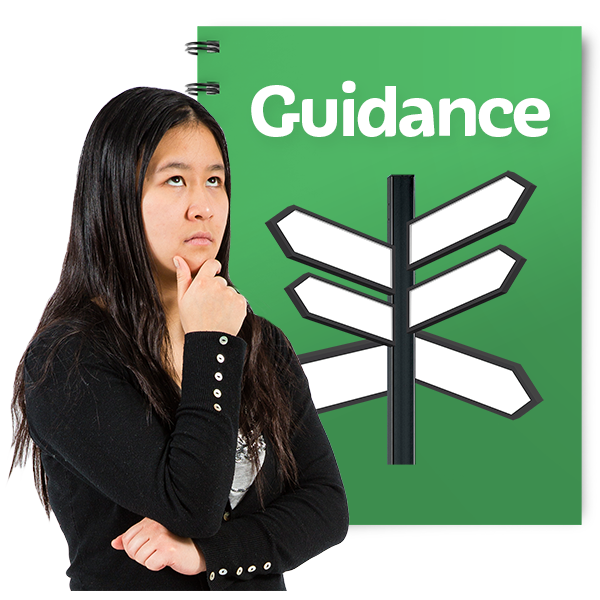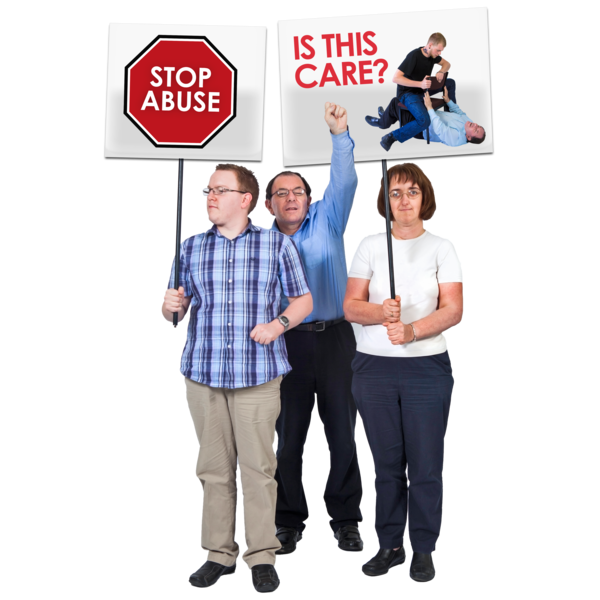Charities Mencap, the
Challenging Behaviour
 Challenging behaviour can be when someone hurts themselves, hits or pinches someone else, or breaks something. Some people might behave like this because they are upset or because people do not understand them.
Foundation and the National Autistic Society have produced new
campaign
Challenging behaviour can be when someone hurts themselves, hits or pinches someone else, or breaks something. Some people might behave like this because they are upset or because people do not understand them.
Foundation and the National Autistic Society have produced new
campaign
 A campaign is when people work together to try to change something.
guidance
A campaign is when people work together to try to change something.
guidance
 Guidance means being given clear instructions to be able to do something well.
for groups and individuals wanting to apply pressure on NHS England and local areas to deliver change for thousands of people with a
learning disability
Guidance means being given clear instructions to be able to do something well.
for groups and individuals wanting to apply pressure on NHS England and local areas to deliver change for thousands of people with a
learning disability
 A learning disability is to do with the way someone's brain works. It makes it harder for someone to learn, understand or do things.
,
autism
A learning disability is to do with the way someone's brain works. It makes it harder for someone to learn, understand or do things.
,
autism
 Autism is a disability. Autistic people find it difficult to understand what other people think and feel. They also find it difficult to tell people what they think and feel. Everyone with autism is different.
and/or
challenging behaviour
Autism is a disability. Autistic people find it difficult to understand what other people think and feel. They also find it difficult to tell people what they think and feel. Everyone with autism is different.
and/or
challenging behaviour
 Challenging behaviour can be when someone hurts themselves, hits or pinches someone else, or breaks something. Some people might behave like this because they are upset or because people do not understand them.
currently stuck in inpatient units.
Challenging behaviour can be when someone hurts themselves, hits or pinches someone else, or breaks something. Some people might behave like this because they are upset or because people do not understand them.
currently stuck in inpatient units.
The ‘Making it Happen’ guide highlights NHS England’s promise to make sure 35-50% of inpatient beds close, and the right support is built in the
community
 A community is the people and places in an area.
by 2019. It outlines how campaigners can help ensure these promises are met through the new Transforming Care Partnerships, which have been set up to implement NHS England’s plan, ‘Building the Right Support' PDF.
A community is the people and places in an area.
by 2019. It outlines how campaigners can help ensure these promises are met through the new Transforming Care Partnerships, which have been set up to implement NHS England’s plan, ‘Building the Right Support' PDF.
It is more than five years since the Winterbourne View scandal, where shocking abuse against people with a learning disability was exposed, and far too many people are still stuck in inpatient units. This is despite repeated promises made by
the Government
 The Government are the people who run the country. The Government decide how much tax people should pay and how things like the National Health Service (NHS) should work.
and NHS England to ensure people move out of units and back to their local areas.
The Government are the people who run the country. The Government decide how much tax people should pay and how things like the National Health Service (NHS) should work.
and NHS England to ensure people move out of units and back to their local areas.
48 Transforming Care Partnerships (TCPs) have now been set up across England to achieve the promises laid out in ‘Building the Right Support’. TCPs were required to produce a plan to show how they’ll do this by July 2016. This new guide will help campaigners to contact their local TCP about their local plan, ask what is being done in their area to develop the right support, and apply pressure to ensure promises are kept.
Download the ‘Making it Happen’ PDF guide here.
Rossanna Trudgian (Head of Campaigns and
Activism
 Activism is taking action to make change. Going to a campaign event with others, writing letters and speaking up are all ways to take action.
at Mencap), Viv Cooper (CEO at the Challenging Behaviour Foundation) and Tom Madders (Head of Campaigns and Community Engagement at the National Autistic Society), said:
Activism is taking action to make change. Going to a campaign event with others, writing letters and speaking up are all ways to take action.
at Mencap), Viv Cooper (CEO at the Challenging Behaviour Foundation) and Tom Madders (Head of Campaigns and Community Engagement at the National Autistic Society), said:
Far too many people with a learning disability, autism and/or challenging behaviour are stuck in inpatient units, over five years on from Winterbourne View, where they are at increased risk of abuse and neglect.
Transforming Care Partnerships (TCPs) are the latest move in a long line of promises from the Government and NHS England to ensure people with a learning disability, autism and/or challenging behaviour move out of inpatient units and get the right support in the community. So far, many deadlines have been missed. Individuals and families have had to wait too long. It is vital that NHS England and its TCPs deliver the change urgently needed.
We’re urging groups and individuals to use the Making It Happen guide to put pressure on their local TCP and hold NHS England to account. We want to see real change, so that people with a learning disability, autism and/or challenging behaviour live fulfilling lives, with the right support in the community.
Families whose loved ones are, or have been, stuck in inpatient units supported the guide and wrote the Foreword:
This guide, ‘Making it Happen’, is for campaigners who want to make sure things change for people with a learning disability, autism and/or challenging behaviour. The new Transforming Care Partnerships are a real opportunity we need to use to achieve change locally, but we can’t do this alone.
We need campaigners like you to support us by taking action. As parents, we call on you to help us hold NHS England to account, through the new Transforming Care Partnerships. Promises have been made and they must be delivered.
Getting people out of units is only one part of the issue. Support must be provided to stop people going into units, and a good life must be made possible in the community. This guide was written to give you some practical things to do to make change happen. It’s time we got our loved ones home.
-ENDS-
For further information, please contact the Mencap press office on 020 7696 5414 or media@mencap.org.uk or for out of hours 07770 656 659.
About Mencap
There are 1.4 million people with a learning disability in the UK. Mencap works to support people with a learning disability, their families and carers by fighting to change laws, improve services and access to
education
 Education is when you learn things. When you fill in a form to get a job, education means you write where you went to school, college or university.
,
employment
Education is when you learn things. When you fill in a form to get a job, education means you write where you went to school, college or university.
,
employment
 Employment means having a job.
and
leisure
Employment means having a job.
and
leisure
 Leisure is when you have time to do things you enjoy like playing sports or going to the pub.
facilities. Mencap supports thousands of people with a learning disability to live their lives the way they want.
Leisure is when you have time to do things you enjoy like playing sports or going to the pub.
facilities. Mencap supports thousands of people with a learning disability to live their lives the way they want.
For advice and information about learning disability and Mencap services in your area, contact Mencap Direct on 0808 808 1111 (9am-5pm, Monday-Friday) or email help@mencap.org.uk
What is a learning disability?
A learning disability is a reduced intellectual ability which can cause problems with everyday tasks – for example shopping and cooking, or travelling to new places – which affects someone for their whole life.
People with a learning disability can take longer to learn new things and may need support to develop new skills, understand difficult information and engage with other people. The level of support someone needs is different with every individual. For example, someone with a severe learning disability might need much more support with daily tasks than someone with a mild learning disability.
Learning disability is NOT a mental illness or a learning difficulty. Very often the term ‘learning difficulty’ is wrongly used interchangeably with ‘learning disability’.
The Challenging Behaviour Foundation
The Challenging Behaviour Foundation (CBF) is an independent charity providing information, support and workshops around challenging behaviour associated with severe learning disabilities to families and professionals. The CBF leads the ‘Challenging Behaviour National
Strategy
 A strategy is a plan to show what an
organisation
A strategy is a plan to show what an
organisation
 An organisation are a group of people who work together.
, or a person, wants to do and how they are going to do it.
Group’ which seeks to influence policy and practice nationally and has developed the Challenging Behaviour
Charter
An organisation are a group of people who work together.
, or a person, wants to do and how they are going to do it.
Group’ which seeks to influence policy and practice nationally and has developed the Challenging Behaviour
Charter
 A charter is a piece of paper that says how things should be done.
.
A charter is a piece of paper that says how things should be done.
.
The Challenging Behaviour Foundation was founded in 1997 by Vivien Cooper, parent of a son with severe learning disabilities who displays behaviour described as challenging. Today the Challenging Behaviour Foundation is in regular contact with over 5000 families and professionals across the UK. There are an estimated 30,000 individuals in England with severe learning disabilities and behaviour described as challenging.
Visit www.challengingbehaviour.org.uk.
The National Autistic Society
- The National Autistic Society is the UK's leading charity for people on the autism spectrum and their families. Founded in 1962, it provides information, support and pioneering services, and campaigns for a better world for people on the autism spectrum.
- To find out more about autism or the NAS, visit www.autism.org.uk.
- Follow the NAS on Twitter (@Autism) or Facebook (www.facebook.com/NationalAutisticSociety).
What is autism?
Autism is a lifelong developmental disability that affects how people perceive the world and interact with others.
More than 1 in 100 people are on the autism spectrum, including an estimated 700,000 people in the UK
Every person on the autism spectrum is different. It can present some serious challenges – but, with the right support and understanding, autistic people and their families can live full lives.
Although everyone is different, people on the autism spectrum may:
- Be under or oversensitive to sounds, touch, tastes, smells, light or colours, which can make everyday life extremely difficult
- Find social situations and change a challenge, sometimes leading to extreme levels of anxiety
- Experience a ‘meltdown’ if overwhelmed by anxiety or sensory overload
- Benefit from extra time to process and respond to communication.